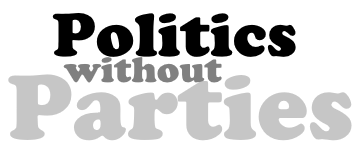Information for British constituents with an interest in establishing participatory democracy and freedom from corrupt representation, factional impositions and unjust settlements
 Introduction to assemblies Introduction to assemblies
This section is in preparation...
Assemblies are the means whereby people used to meets in a physical location to discuss matters of mutual interest. Assemblies of different types are a vital component of democratic procedures and methods. However, the possibilities of holding remotely attended meetings making use of the online networks has changed the nature of the requirements in terms of buildings and infrastructures required to participate in meetings or assemblies.
The Book, "The Briton's Quest for Freedom", refers to four tribunals as a General Election, Parliament, the House of Lords and Trial by Jury. An additional tribunal is life itself where communities accumulate experience, wisdom and a community conscience but which our political party system marginalizes in terms of not facilitating participation in decision making such as the shaping of policy propositions and public choice.
 In a constitutional environment without political parties there would be a demand for an increased role for local forums or assemblies where people can review and discuss local issues and share ideas with people further afield so as to separate location-specific needs from general national requirements. In a constitutional environment without political parties there would be a demand for an increased role for local forums or assemblies where people can review and discuss local issues and share ideas with people further afield so as to separate location-specific needs from general national requirements.
Although internet communications facilitate assemblies and meetings, currently, the way in which these take place tend to be within specific networks often involving few people. The issue therefore becomes establishing ways and means whereby larger numbers of people can be made aware of meetings of potential interest to them and for them to have the means of attending remotely.
Those with experience in project identification will know that the participatory meetings held with local stakeholders can often be disorinetated by meeting moderators who have a specific agenda and therefore have an objective to end up with a project design favouring the interests of a specific group. Quite often the establishment of "Terms of reference" for meetings or work groups are purposely written to prevent group proposals ending up with proposals that are not desired by specific interest groups.
There are due diligence procedures that can help neutralise such negative manipulations so as to achieve assembly coordination so as to end up with satifactory mutually supported propositions.
These and related questions will be the subject of this section.
It is time for a politics without parties!! |
|